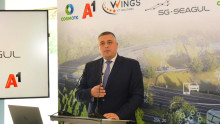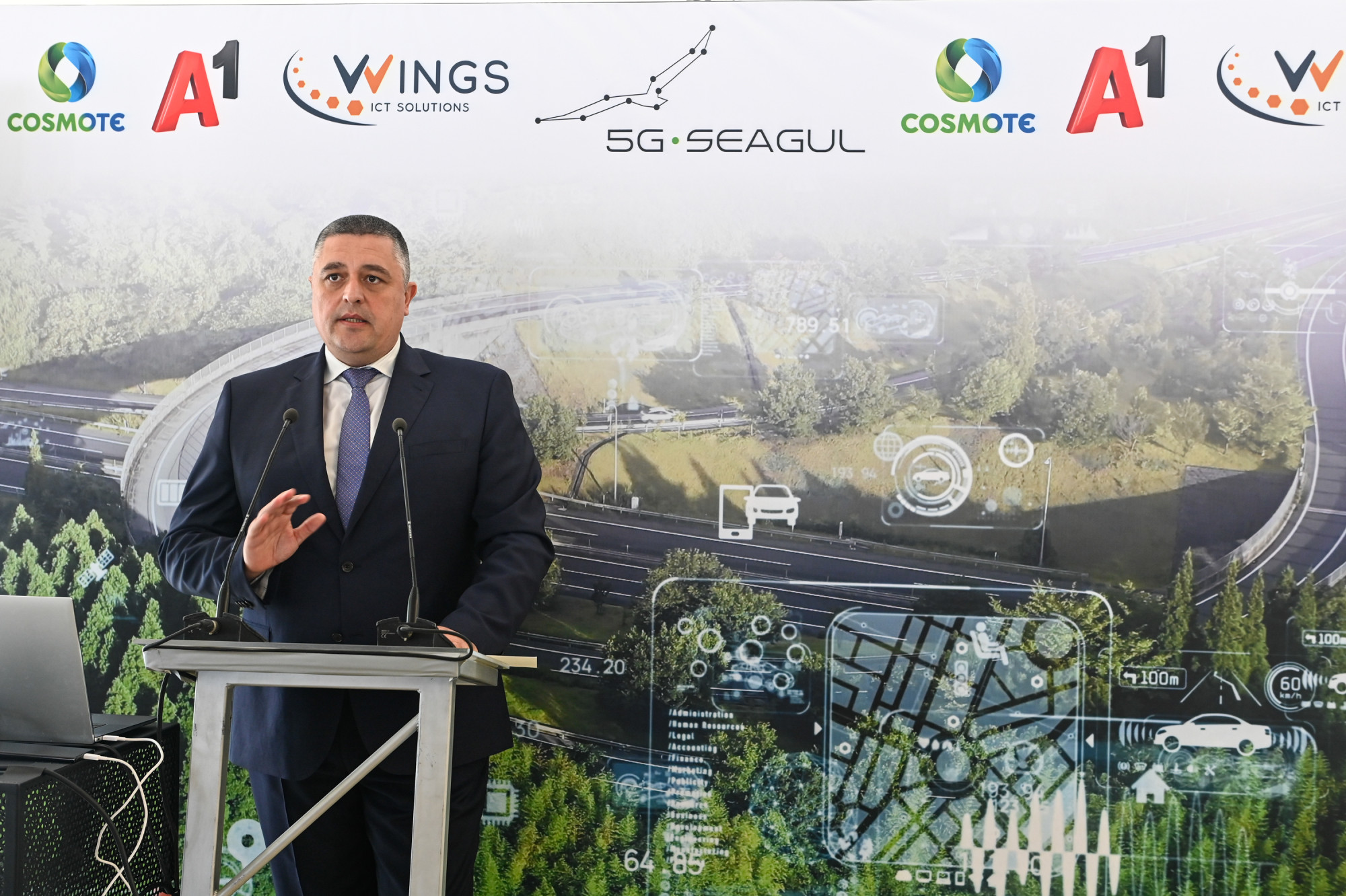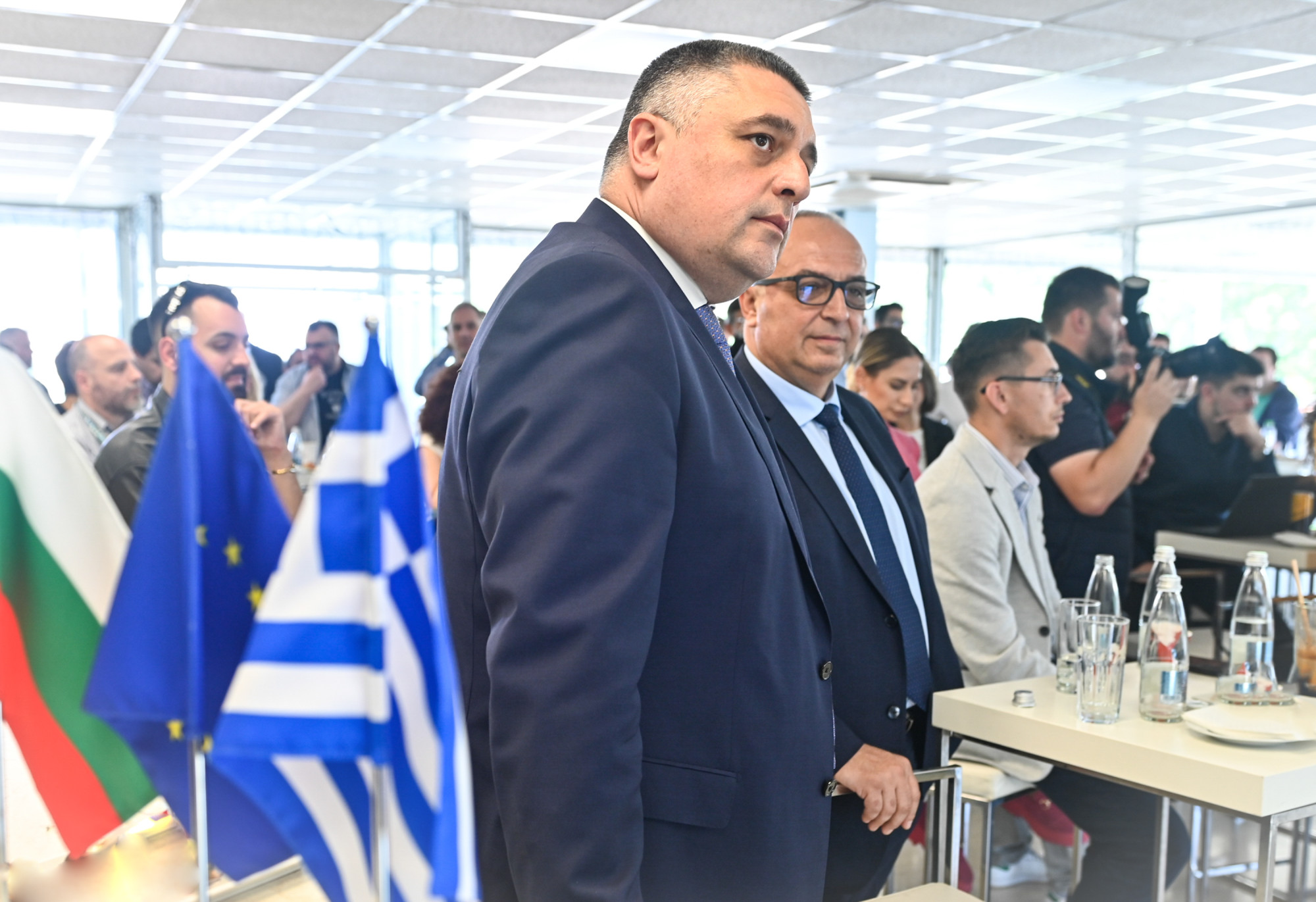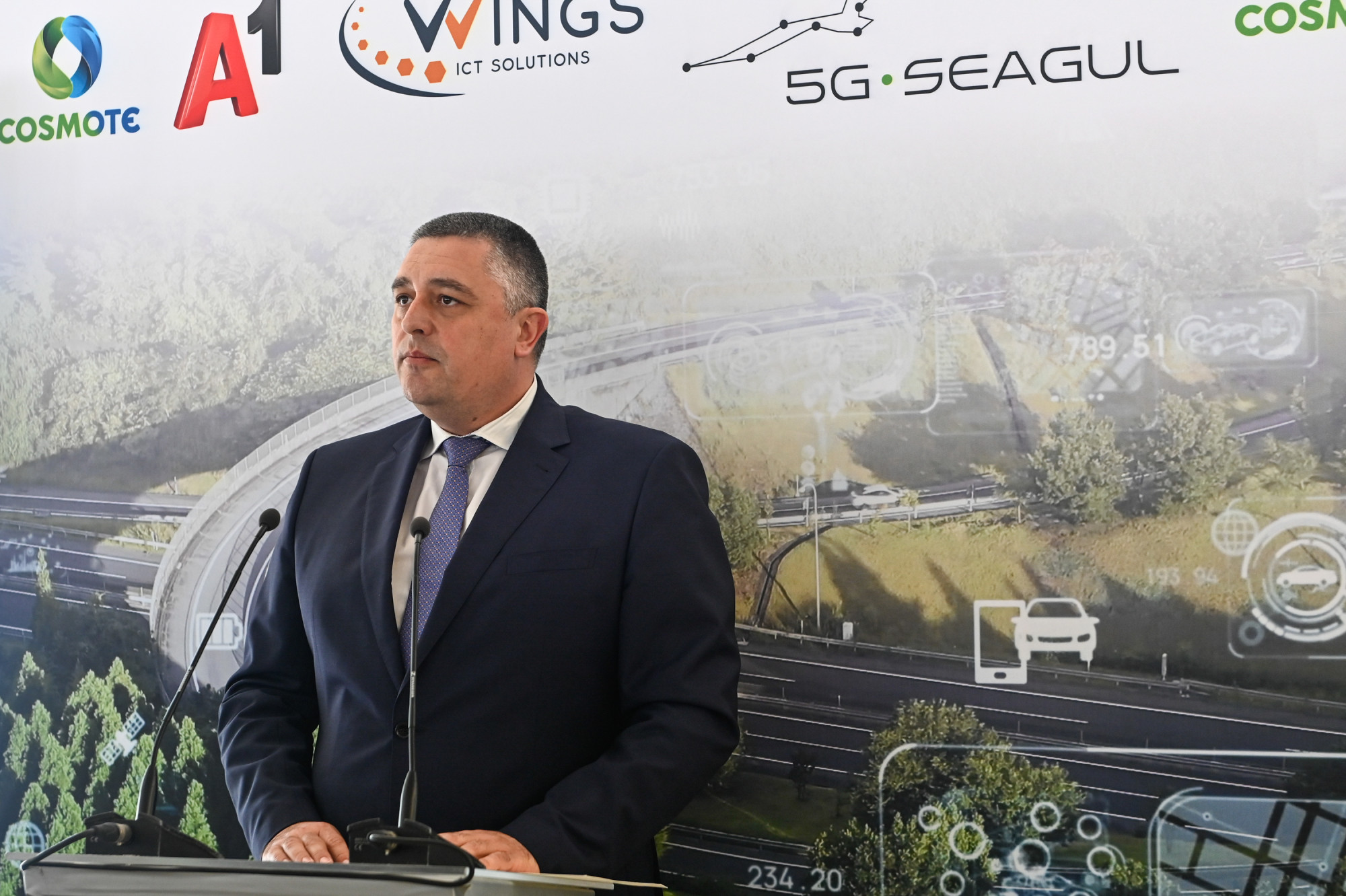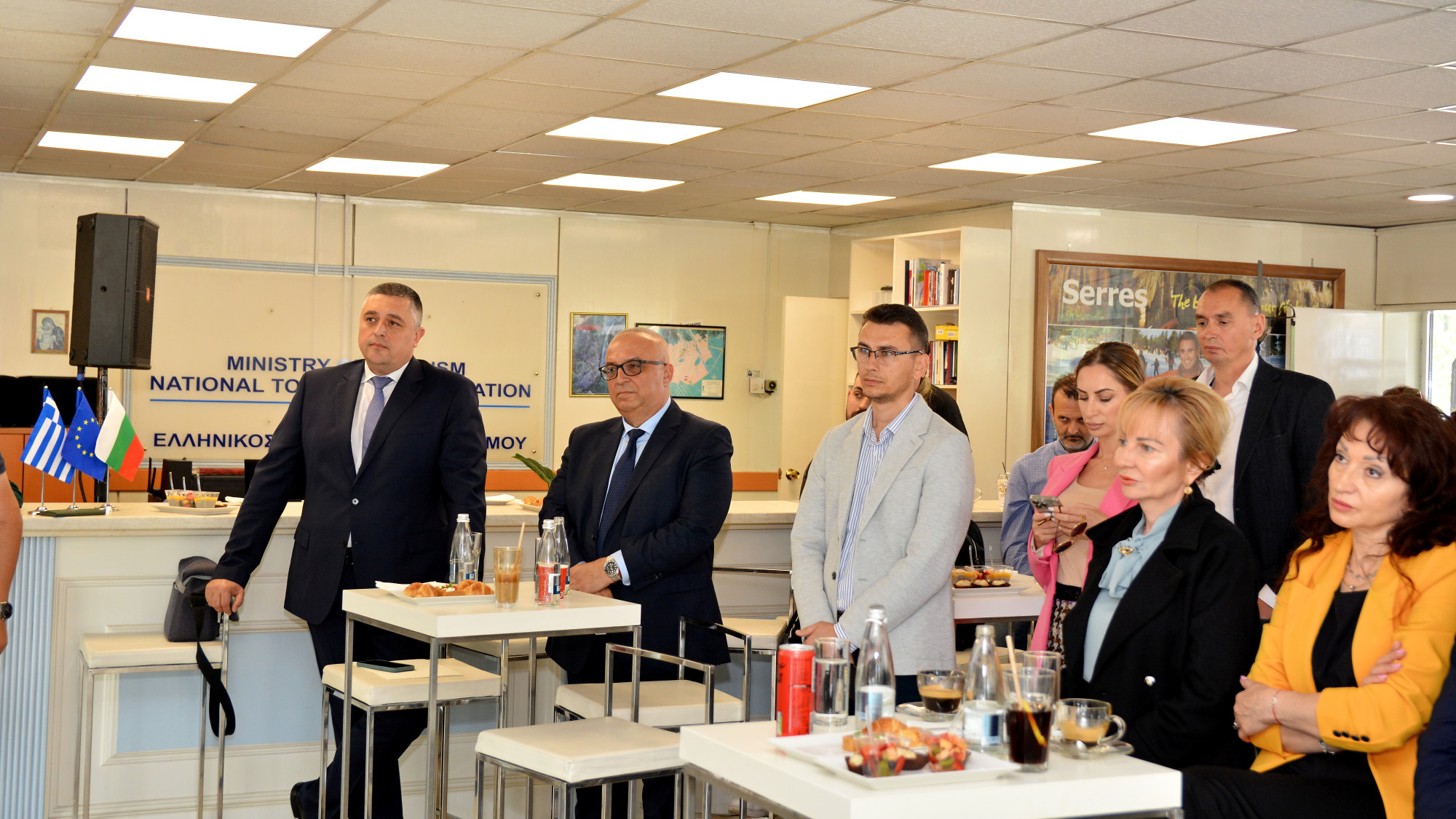Building 5G coverage on the highways connecting Bulgaria and Greece is important both for mobility and for improving digital services for the small municipalities along this corridor. This was stated by the Deputy Minister of Transport and Communications Dimitar Nedyalkov at the demonstration of the first phase of the cross-border 5G SEAGUL project.
The international consortium between A1 Bulgaria, Greece's COSMOTE and WINGS ICT Solutions is working to build uninterrupted 5G coverage along the Orient/East Mediterranean corridor, which is part of the Pan-European Transport Network. The project is 50% co-funded by the Connecting Europe Facility 2 - Digital Strand, and the Ministry of Transport and Communications is the programme coordinator and actively supports the applicants.
"The Ministry of Transport and Communications welcomes the benefits that the implementation of the project will bring to the 173-kilometre Bulgarian road section. The services that will be available are continuous voice and video calls, autonomous driving, real-time sharing of current traffic data, traffic information, improved transport safety, and last but not least convenience. Quality 5G connectivity has the potential to improve digital services, playing a key role in the long-term economic development and social cohesion of regions," Deputy Minister Nedyalkov said at the event.
The aim of 5G SEAGUL is to support connected and automated mobility services. The area covers 450 km of highways on the territory of Bulgaria and Greece, as well as the Kulata-Promahon crossing.
The demonstration of the first results was also attended by the Chairman of the Communications Regulation Commission Ivan Dimitrov, representatives of the European Commission and the contractors of the project.

